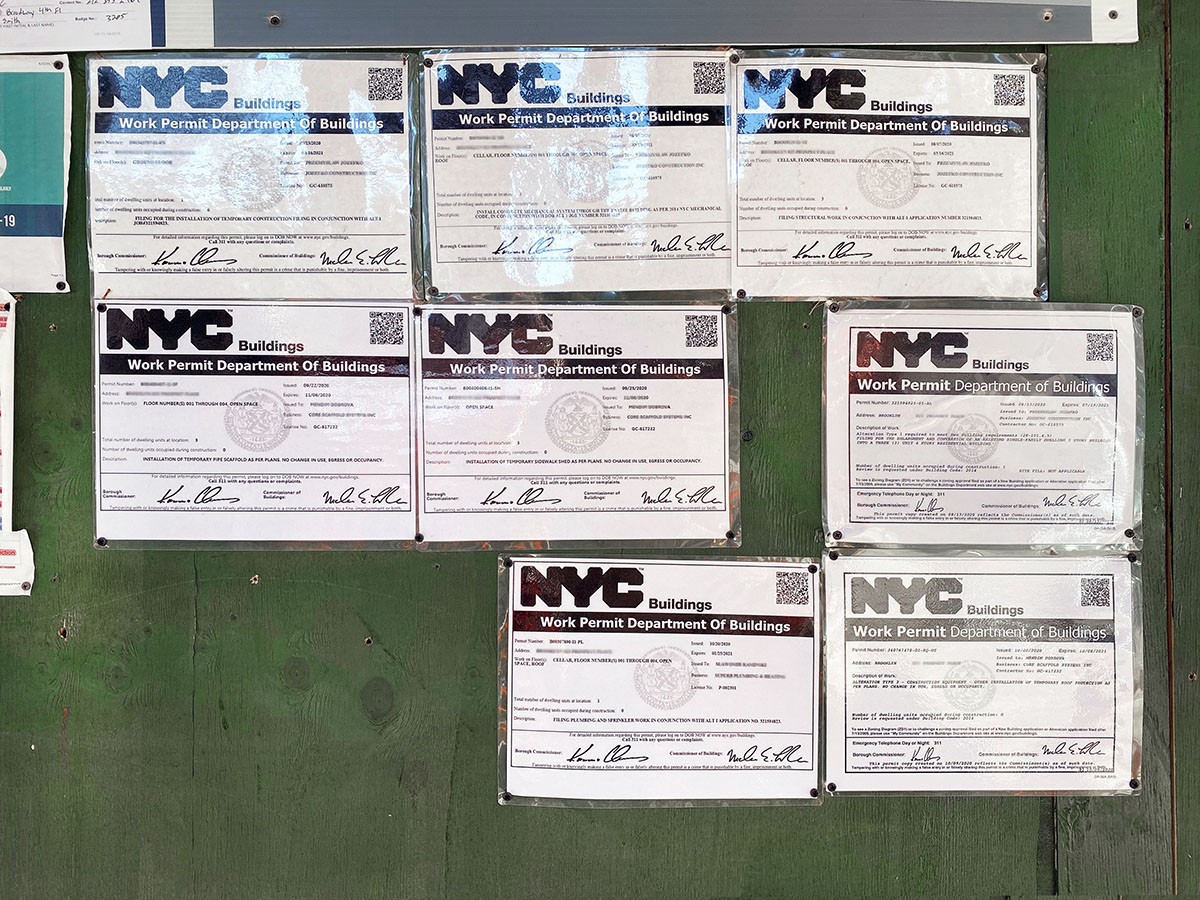DOB Denying Permits to Buildings with Excessive Violations and Arrears

In the last couple of years, New York City has passed two new local laws restricting the issuance of new permits, and in some cases revoking active permits, to properties with excessive violations and to those who owe the City $25,000 or more in arrears. The DOB is stepping up compliance with Local Law 104 of 2019 and Local Law 160 of 2017, which just went into effect in the beginning of March.
Local Law 104 of 2019: Permit Restrictions for Buildings with Excessive Violations
As of March 4, 2021, the New York City Department of Buildings (DOB) is placing restrictions on issuing new building permits for residential buildings with excessive open DOB and HPD violations per Local Law 104 of 2019.
Applications for initial work permits in the Buildings Information System (BIS) will be denied for multi-dwellings with violations as follows:
- Buildings with 35 or more units and two or more violations per unit.
- Buildings with fewer than 35 units and three or more violations per unit.
The types of violations include either both or one of the following:
- Open hazardous or immediately hazardous Housing Maintenance Code violations (Class B and C violations issued by the NYC Department of Housing Preservation and Development that have not been cleared.)
- Open immediately hazardous or major Construction Code violations (Class 1 and Class 2 OATH summonses issued by DOB that have not been certified as corrected.)
The permit restriction will apply to buildings for violations issued on or after January 4, 2020.
DOB will keep an updated list of New York City buildings with excessive violations. Buildings on this list will be denied new permits until the violations are resolved or cleared.
Exceptions may apply in certain situations. To apply for an exception request, applicants must submit a Local Law 104 of 2019 Request for Exception to Permit Restriction form with required documentation.
Local Law 160 of 2017: Permit Restrictions for Owners Owing $25,000 or More to the City
Beginning March 4, 2021, the DOB will revoke active permits and deny new permits to property owners who owe $25,000 or more to the City of New York.
Specifically, per Local Law 160 of 2017, properties where $25,000 or more is owed in covered arrears, or if the owners of the property together owe $25,000 or more in covered arrears to New York City will not be allowed to request New Building and Alteration-CO permits in the Owner’s Attestation on the Plan/Work (PW1) application in DOB NOW: Build. This affects any new building, demolition, place of assembly or major alteration that would change the use, egress or occupancy of a property.
Covered Arrears
Covered arrears may including any of the following that are not currently in the appeals process:
- Unpaid fines, civil penalties, or judgements entered by a court or OATH
- Unpaid and past due fees or other charges assessed by the DOB
Owners, permit holders, and applicants will be sent a letter notifying them of the DOB’s intent to revoke a permit over covered arrears, and they will have 15 days to submit either a clearance letter from the New York City Department of Finance (DOF) or proof that an exception applies.
When applying for New Building or Alteration-CO permits in DOB NOW: Build, owners of properties that are affected by LL160/17 will not be allowed to request a permit in the Owner’s Attestation on the Plan/Work (PW1) application unless they certify that an exception applies.
Contact RAND
Owners should take immediate steps to clear violations and past due fines as soon they are received to prevent delays on projects. If your building has been affected by Local Law 104 of 2019 or Local Law 160 of 2017, or if you have any other code compliance questions, contact RAND’s in-house Code & Zoning Compliance Team at info@randpc.com or 212-675-8844.
Paul Grissett is head of RAND’s Code & Zoning Compliance team.






